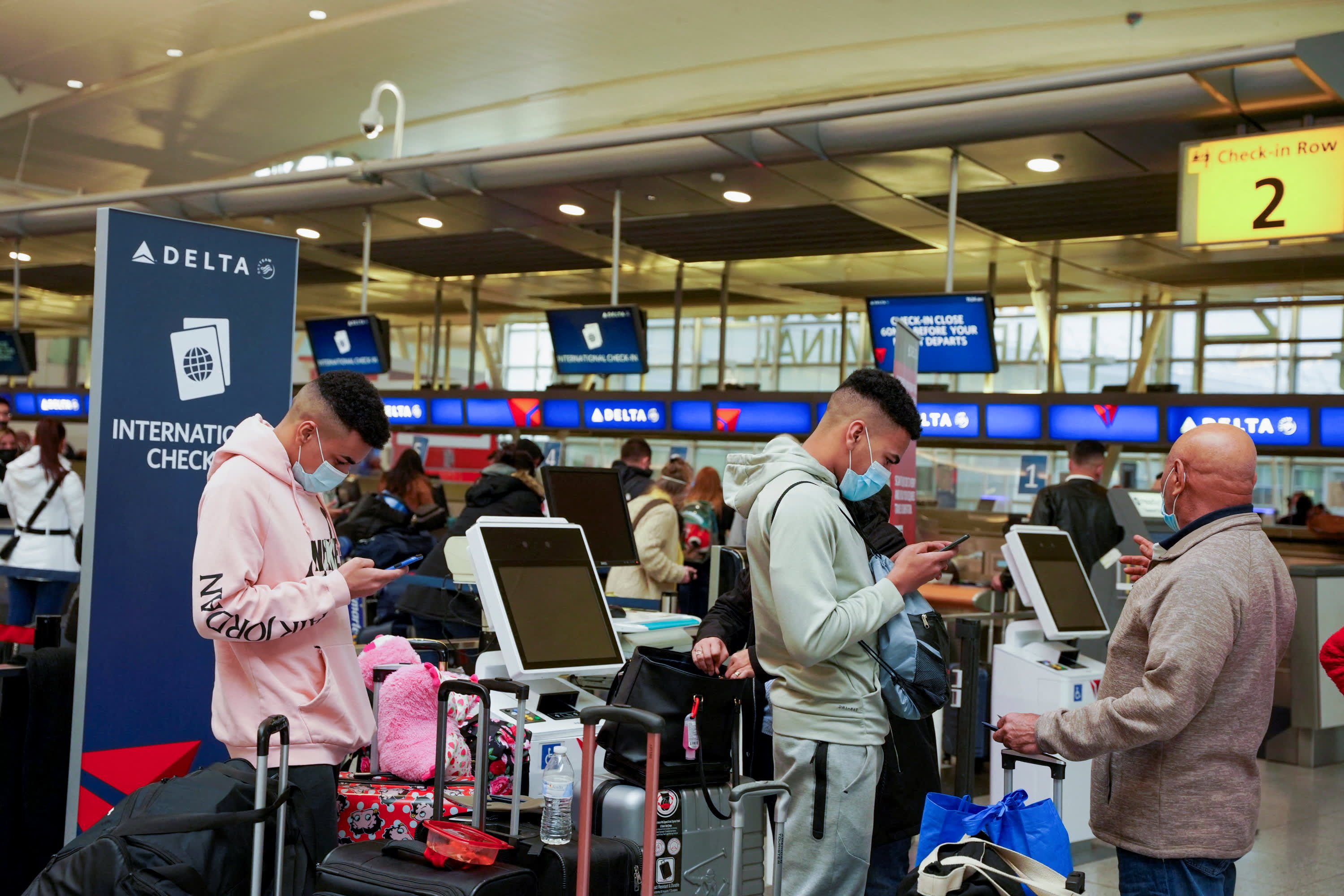
Passengers line up at John F. Kennedy International Airport after airlines announced numerous flights were canceled during the spread of the Omicron coronavirus variant on Christmas Eve in Queens, New York, December 24, 2021.
Dieu-Nalio Chery | Reuters
Transportation Secretary Pete Buttigieg urged airline CEOs on Thursday to ensure they can fly their schedules reliably this summer after a rise in delays and cancellations this year, according to a person familiar with the call.
The secretary asked airlines what steps they were taking to ensure that disruptions that occurred over Memorial Day weren’t repeated during July 4 weekend and the rest of the summer, the person said. Buttigieg also pushed airlines to improve customer service so that passengers can rebook quickly, the person said, describing the call as “productive and collaborative.”
Airlines have struggled with routine disruptions such as weather alongside staffing shortfalls and a surge in travel demand. JetBlue Airways, Delta Air Lines, Spirit Airlines, Southwest Airlines and Alaska Airlines have already scaled back their spring and summer travel schedules to give themselves more room to handle disruptions.
More than 7,100 U.S. flights were delayed and nearly 1,600 were canceled as multiple thunderstorms snarled travel to and from some of the country’s busiest airports, according to flight-tracking site FlightAware.
The Thursday meeting came after Sens. Richard Blumenthal (D-Conn.) and Edward Markey (D-Mass.) earlier this month wrote to U.S. airlines’ industry group, Airlines for America, pressing for more information about disruptions over Memorial Day weekend.
“We appreciated the opportunity to meet with Department of Transportation Secretary Buttigieg to discuss our shared commitment to prioritizing the safety and security of all travelers as they reunite with friends, family and colleagues this summer,” Nick Calio, CEO of Airlines for America, which represents large U.S. carriers, said in a statement.
Airline executives have occasionally placed blame on air traffic control.
The Federal Aviation Administration last month called carriers to Florida for a meeting about recent flight disruptions in the state, where flight hurdles include frequent thunderstorms, military exercises and space launches, as well as a surge in demand.
The FAA, which participated in Thursday’s meeting, had said it would increase staffing at a key air traffic facility in Florida, among other measures.
This article was originally published on CNBC

